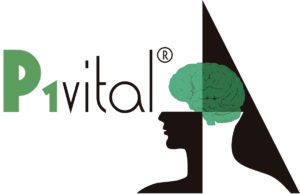DPhil Experimental Psychology, University of Oxford (2011)
| Senior Scientist | |
|---|---|
| P1vital Ltd | |
Year entered into a non-academic position: 2016
Job highlight: I enjoy the fast pace and diversity of the research projects I work on, getting to collaborate with a variety of medical science experts from all over the world, and the authority I am granted to conduct my work. I also enjoy the amount of travel – although it can occasionally be a bit much!
My research training set me up to … conduct high-quality research in the field of mental health. My research training was directly relevant to my work for a commercial company.
Left academia after: 4 years 8 months of post-doctoral work
What’s your background?
I studied experimental psychology for both my undergraduate degree and DPhil. My research started at the more basic-science end of things, but later during my post-doc I gravitated more towards clinical research.
Why did you move away from academia?
I feel passionate about mental health and the need for more incisive research in this area of medicine, which is generally under-funded. However, I became increasingly interested in translation of research ideas into practical implementation and had also started to suspect that the typical academic career path to becoming a Principal Investigator might not be accessible to me (because of how competitive academia is) nor indeed particularly desirable (because, for example, I preferred diversification in my research interests rather than specialization). Another reason was that, in my field, there seems to be an increased status associated with holding a clinical degree, which I did not want to complete, and which I was concerned would hold me back in my academic career. Finally, I started to feel that some of my skills, for example my operations and management skills, were going to be more valued and appreciated in industry than they were in academia.
Is there anything you miss about academia?
I miss my colleagues from that time, and I miss the short commute, but otherwise my role in industry meets or exceeds my academic experience.
How did you get this job? Did you face any challenges when considering a move away from academia or applying for the role?
Once I had decided to explore job opportunities outside academia, I reached out to a few contacts and started to go to careers events. One day, I went to a short series of lectures at the Department of Psychiatry, and heard a talk given by one of the founders of a small company, P1vital. I was excited by the research that this company was involved in. I introduced myself afterwards and stated my interest directly. It was a matter of months before I was in my new post. That was back in 2016.
The challenges I faced in leaving academia were mainly ‘internal’, as in, I felt unsure whether I was making the right decision to leave my post. And I was somewhat afraid of the unknown. Other than that, I found that I felt well-supported through the process.
I was unprepared when it came to negotiating salaries and got caught off guard when asked about it in interview! That’s not something that comes up so frequently in academia.
Did you think you had the skills required for your current position before you started? Were you right?
I did think I had the skills, and I believe I’ve been a valuable addition to the team I now work in. However, I also had lots of new skills to learn, especially about strategic thinking, and managing complex projects with diverse groups of people.
How did your PhD prepare you for your current job? For example, what were the transferable skills that you developed during your PhD that are most relevant to your current job?
The skills I acquired during my PhD were directly relevant to my role in a commercial company. This encompassed knowledge of the scientific process and mental health research in particular, project management skills, analysis skills, and a good grasp of effective science communication/dissemination. Perhaps the most valuable skills, though, were an ability to work autonomously and take initiative to solve problems.
Did you have any preconceptions about your sector that proved to be wrong?
I had assumed that working in research in industry would be less collaborative than in academia, but my experience it is rather the other way around.
Can you describe a typical week in your job?
I spend perhaps a third of my time thinking about clinical operations issues for the projects I am managing, about a third of my time on more scientific tasks (reading research papers, discussing study designs, analysing data or interpreting results) and about a third of my time managing my teams (for example chairing meetings, fulfilling my line management responsibilities, providing feedback).
What’s the workplace culture like?
I work for a small company of roughly 20 employees. Working for a small company means that you know everyone you work with pretty well, and this suits my style. We get along well, we know each other’s ways of working, and deal with issues effectively. There is little bureaucracy or administrative work that we are required to do. This fosters an efficient and lively working environment.
Do people with a PhD frequently get hired in the company/sector?
Yes, although there are many different kinds of role, and certainly not all require a PhD.
What are your favourite parts of your job?
I most enjoy the feeling of being a competent, trusted, and an empowered member of my team; capable and effectual in helping us to achieve the goals that we set.
I enjoy the increasingly broad network of professional connections I have cultivated, in both academic and commercial spheres. Increasingly, I enjoy helping to shape strategy for our company’s projects. This means meeting with potential clients, talking about their objectives, and helping to craft programs of research that help meet those objectives.
What are your reflections on your (future) career path?
This is a good question, and one that I do not have answers for yet. I contemplate moving to work for a pharmaceutical company. This would be one natural progression for someone in my post. I also think about entrepreneurship, and the possibility of starting my own medical sector company one day.
Do you have any advice for current graduate students and post-docs considering a career outside of academia?
Explore the options. There are more of them, and they are probably going to be more appealing, than you expect. The biggest hurdle is to just start looking around, and open that door.
 P1vital Ltd provides a comprehensive range of Contract Research Organisation services in CNS Experimental Medicine. Our study delivery services can enable our clients to make more rapid and effective decisions in the development of CNS pharmaceutical compounds. P1vital works in collaboration with leading academic centres to offer unique opportunities for CNS translatable solutions.
P1vital Ltd provides a comprehensive range of Contract Research Organisation services in CNS Experimental Medicine. Our study delivery services can enable our clients to make more rapid and effective decisions in the development of CNS pharmaceutical compounds. P1vital works in collaboration with leading academic centres to offer unique opportunities for CNS translatable solutions.
Our affiliated company, P1vital Products Limited, develops bespoke software and systems necessary to provide our clinical research services at an exceptional level of quality on which we pride ourselves. We specialize in the development of neuropsychological tasks, hosted on our own online P1vital® ePRO Clinical system. We also conduct R&D that builds on our experience in clinical research and digital software engineering to develop digital solutions that we believe can revolutionize mental healthcare.





